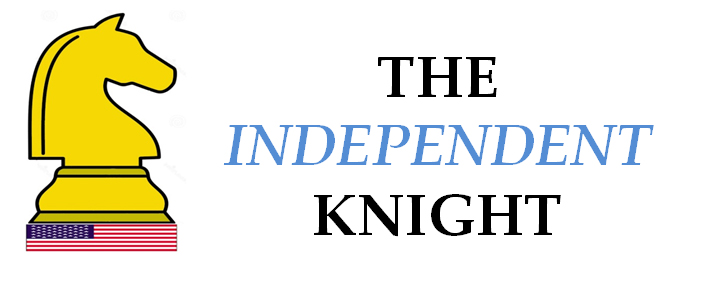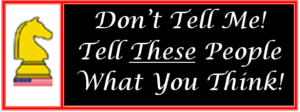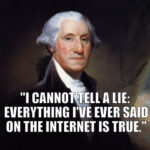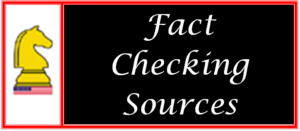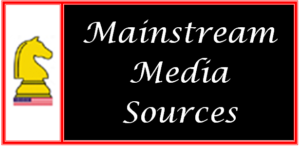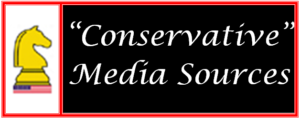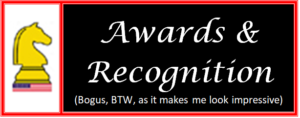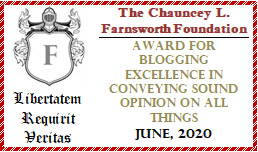BEING AN INDEPENDENT VOTER DOES NOT MEAN YOU’RE AN INDECISIVE VOTER
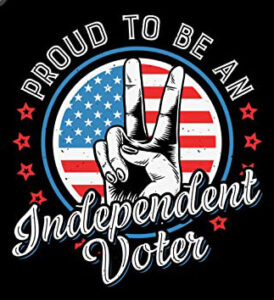
Let’s attempt to define the idea of being an Independent voter. Wiki suggests… “An independent voter is variously defined as a voter who votes for candidates on issues rather than on the basis of a political ideology or partisanship.” In other words, as I’ve echoed previously, an Independent voter votes for the person not political party; issues, not political ideology. In theory, even a pro-Trump voter can typically prefer to be Independent… preferring to vote for Trumpian ideals but not be totally supportive of the man himself. So I am not just talking the idea of being an Independent voter is simply a disgruntled old Republican in a world with 40% of the voters favoring Trump and his idea of how the country should be run. An Independent voter is NOT an impartial player… just more particular on who or what to vote for. An Independent voter is also not necessarily an indecisive voter; afraid of making a political party commitment. You’re simply separating the decision on how to best apply your vote toward more specific people and issues.. rather than falling in line on a broad party platform that tries to win you over on the general emotionalism that the “other” is bad. No one party has everything correct.
I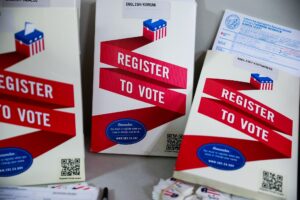 f you went out of your way to register in your state as an Independent it might mean that there’s something inside you that wants to play the field in how you cast your vote. I mean, the average registered Republican or Democrat likely registered that way cause of peer pressure from family and friends, some inherited “obligation” because “No one in ten generations of family has ever voted [fill in the blank]!”, maybe a particular apathy, a particular economic or social grievance, my point is that there are a LOT of registered party voters who might be “ify” on having an all-encompassing devotion to party ideology, but remain registered just the same, opting to change their vote in the privacy of the voting booth is they so desire. There are likely some registered party voters who thought/think that registering as an Independent voter is like sending a message of being indecisive.. or on some ideological fence. Now, to be sure, there are actual party registered voters who sincerely follow party doctrine with their heart & soul… but I think that’s certainly nowhere near 100% of party registered voters by any means. What I am suggesting is that for someone to intentionally become a registered Independent just might have a particular interest in how they cast their vote beyond what they might hear in the media.
f you went out of your way to register in your state as an Independent it might mean that there’s something inside you that wants to play the field in how you cast your vote. I mean, the average registered Republican or Democrat likely registered that way cause of peer pressure from family and friends, some inherited “obligation” because “No one in ten generations of family has ever voted [fill in the blank]!”, maybe a particular apathy, a particular economic or social grievance, my point is that there are a LOT of registered party voters who might be “ify” on having an all-encompassing devotion to party ideology, but remain registered just the same, opting to change their vote in the privacy of the voting booth is they so desire. There are likely some registered party voters who thought/think that registering as an Independent voter is like sending a message of being indecisive.. or on some ideological fence. Now, to be sure, there are actual party registered voters who sincerely follow party doctrine with their heart & soul… but I think that’s certainly nowhere near 100% of party registered voters by any means. What I am suggesting is that for someone to intentionally become a registered Independent just might have a particular interest in how they cast their vote beyond what they might hear in the media.
Consider this… perhaps your having been a registered Republican or Democrat from years back and under an entirely different political climate made some sense. But now with things so domestically dicey on violence and politics, on top of the changing climate and pandemic, being psychologically “tied down” to a single party construct seems out of place. Having the moral flexibility with your vote going where you wish versus where you think it should go to fall in line with a partisan message, might not feel right for you anymore. Being an Independent voter does not mean there’s some “independent party” somewhere (although there is a minor “Independence Party”… a bit different so don’t get confused).
The other reason to recommend becoming an Independent voter is the idea that we are a country of independence. We even had a war with the Brits over the concept back in 1776… that we won. So why presume to hold your vote to the discretion of a political party ideology when maybe a candidate or an issue differs from your own? In the spirit of American independence would it not be a good thing to cast your vote as an Independent voter? Just food for thought.
But Isn’t There Some Official Need For Having Two Political Parties?
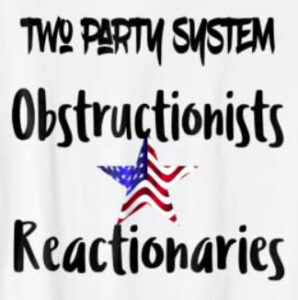
Yeah…. there’s that, too.
It’s been a norm in the American political scene for all of the 20th century up to now so it sure seems “normal”. But the Constitution does not define any need for political parties at all. Essentially political parties are simply another form of an interest group. The holding of primaries has nothing to do with the Constitution. Americans who wish to run for major offices inside the state or federal government must meet the ballot listing requirements to the their names on the official ballot. To do that typically requires signatures of citizenry residents in the locale holding the election. It’s difficult to obtain and prepare for the typical “lone candidate” beyond a town or city or county office without an “army” of people to go out and canvass neighborhoods.. or individual states. Then there’s the advertising to make your name known and distribution of signage. One person seeking office beyond the county level would be hard pressed to do it all alone. Hence the need for having a party identity. Add to that the fund raising cause it all takes money, yada yada. But the idea for being an Independent or non-affiliated voter is to, in some small way, keep your vote a bit more.. confidential… as it relates to your name showing up on the voter rolls with your address. Some folks simply just don’t want all the election junk mail sent out by the parties.
Now, there is a more practical reason we have a two-party system. It’s natural for votes at election time being split between two parties, two schools-of-thought, and the result is one or the other candidate wins the majority of votes. If there are more parities submitting candidates, let’s say three, it would then be possible for the larger count of the three vote counts could be a numerical minority to the total number of voters. For example, one candidate gets 40% of the vote, which then leaves the majority 60% to be split with the other two candidates. The 40% candidate wins as the party with the most votes but represents a minority of the entire registered voters. (Oddly enough, as was seen in 2016, Trump won the electoral vote but lost in the popular vote… so in a way we elected a president on the minority of popular votes, but popular vote doesn’t count in the end).
There is also another consideration on the idea of being an Independent voter. Let’s say you want to vote for a Democrat president because of her good ideas for the country. Now, let’s assume the Republicans take one or both Houses of Congress. Not voting for the new President’s party as well as her makes it very difficult for the new Prez to get her ideas into motion. This means you would have to have a good voting strategy in place. Here’s a real life example….
Ooops…!
In the 2016 Primary the Republicans, in which I was registered back then, was led by contenders Trump and Ted Cruz. I had full intentions of voting for Hillary in the general election and I thought she would be running against Cruz who I thought would be far more formidable than Trump (Trump would/could never win). So I thought to myself, I said, “Self, if I vote for Trump in the primary in order to keep Cruz from running against Hillary, and Trump wins.. then most certainly Hillary would be a shoe-in to win the general. So, my vote for Trump in the Republican primary was to avoid Cruz from running against Hillary, who I wanted as President. Best laid plans…. yada, yada. But you get the idea about strategic voting. It doesn’t always work…. but in the end, it was how I came to use my vote (which I regret having done to this day).
Yeah, I Am Partial, Biased, Maybe Even Prejudiced.. Against Trumpian Nonsense
Yet, just being biased, et al, does not necessarily mean I am pro-Liberal or anti-Conservative in general. When I was a registered Republican I considered myself a Liberal Conservative…. today that’s called “moderate”. But my “bias” is based on my own life experience in applying a measure of common sense and critical thinking skills (that works for me), understanding human behavior, having engaged in leadership and management, and all that other hum-drum elitist resume’ fodder no one really cares about. In blogging all that matters is how one communicates for others to understand. What’s important is that my “bias” is based on a pragmatic application of thought and far less about “gut feel” , stereotypical identifying, ancestral tradition, or cognitive mumbo-jumbo from mom & dad’s upbringing. Sometimes I actually apply SWAG (scientific wild-assed guess).
If you’ve stayed with me this far, consider reading, Be An Independent Knight.



Now what?
